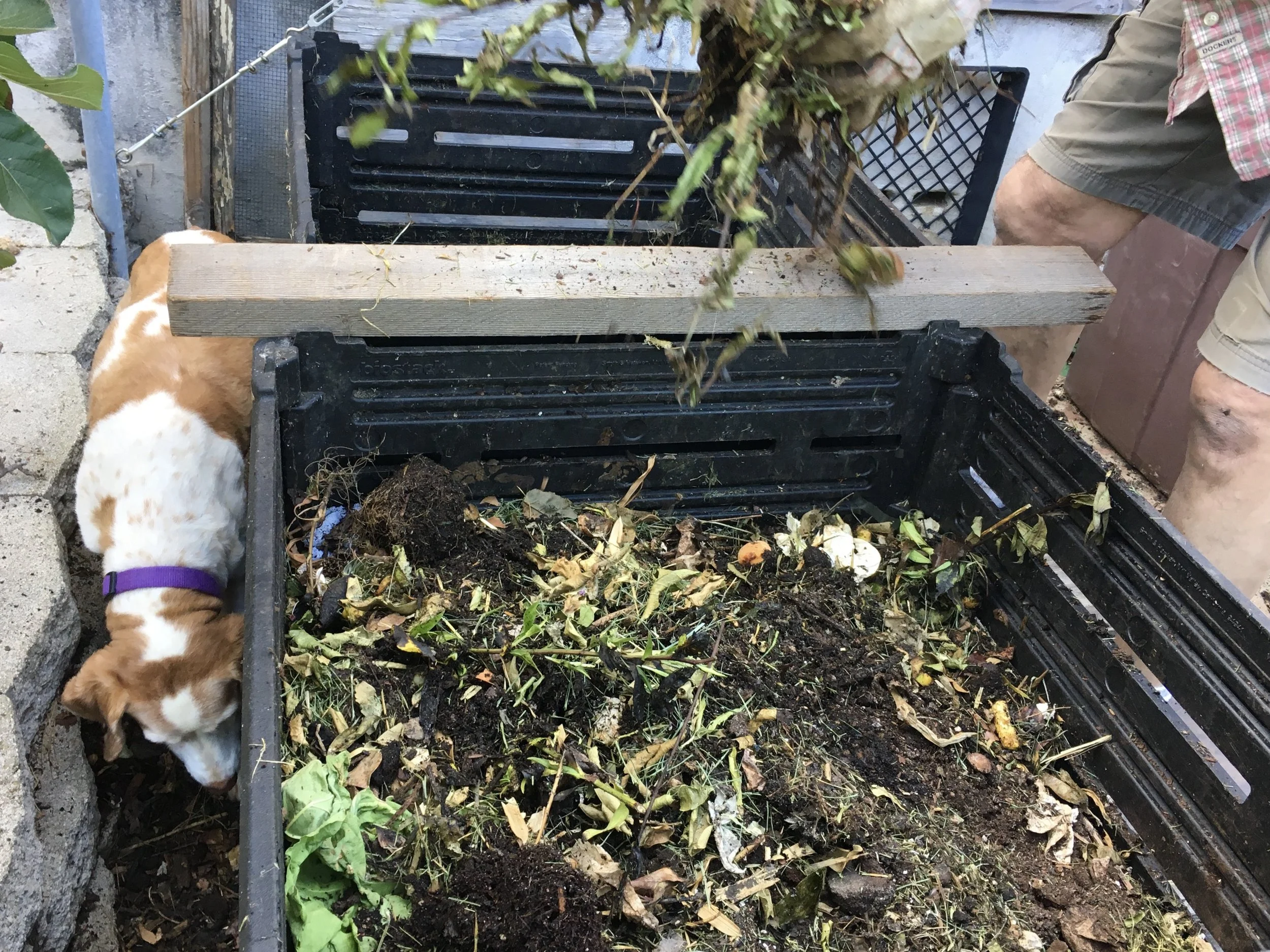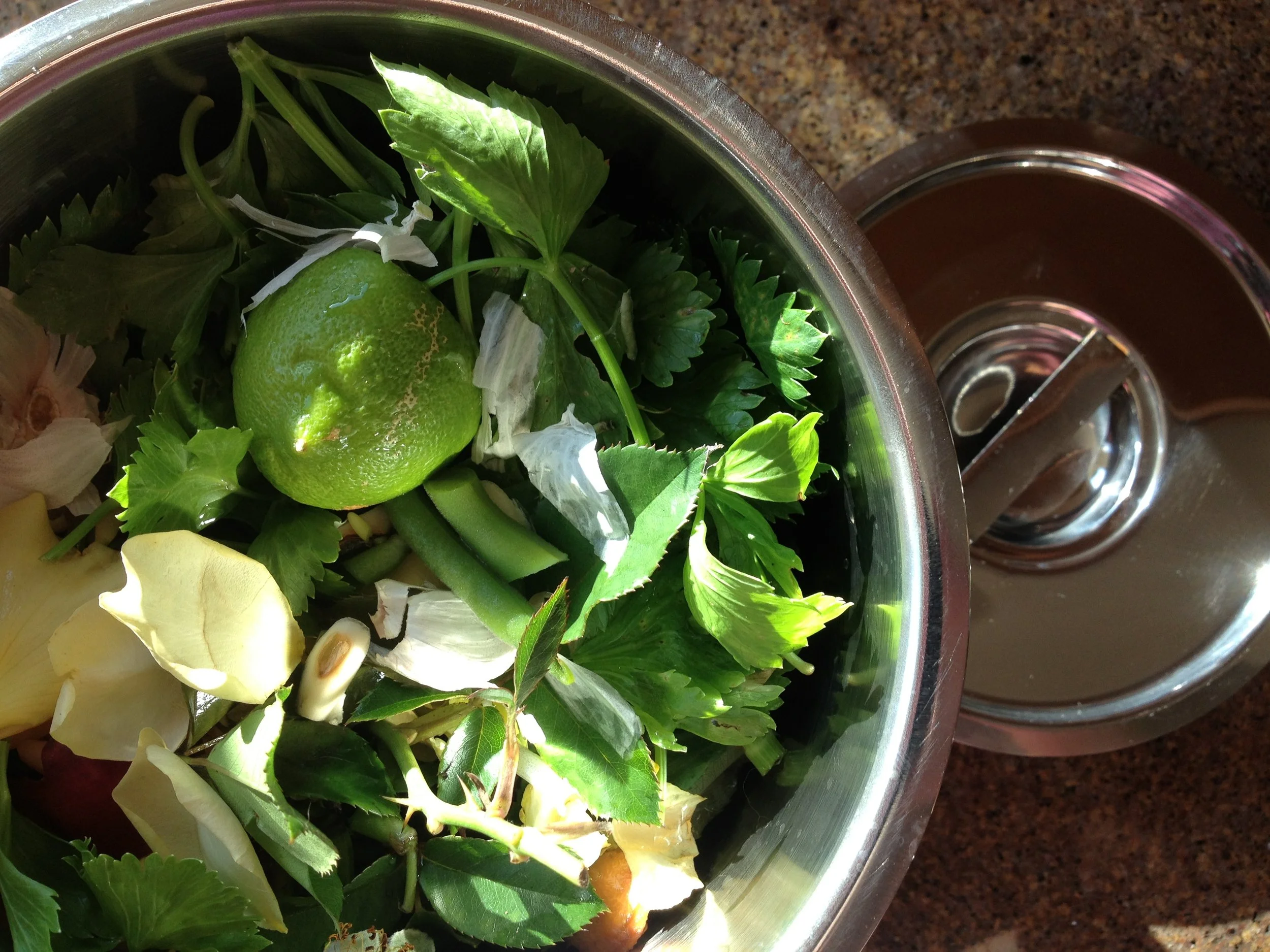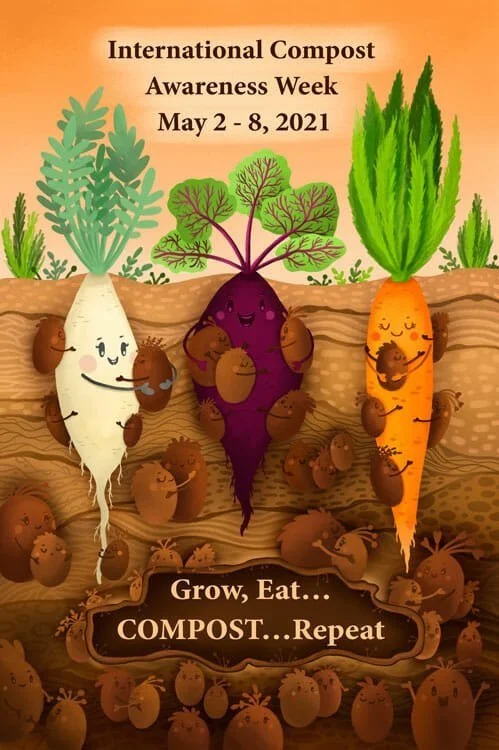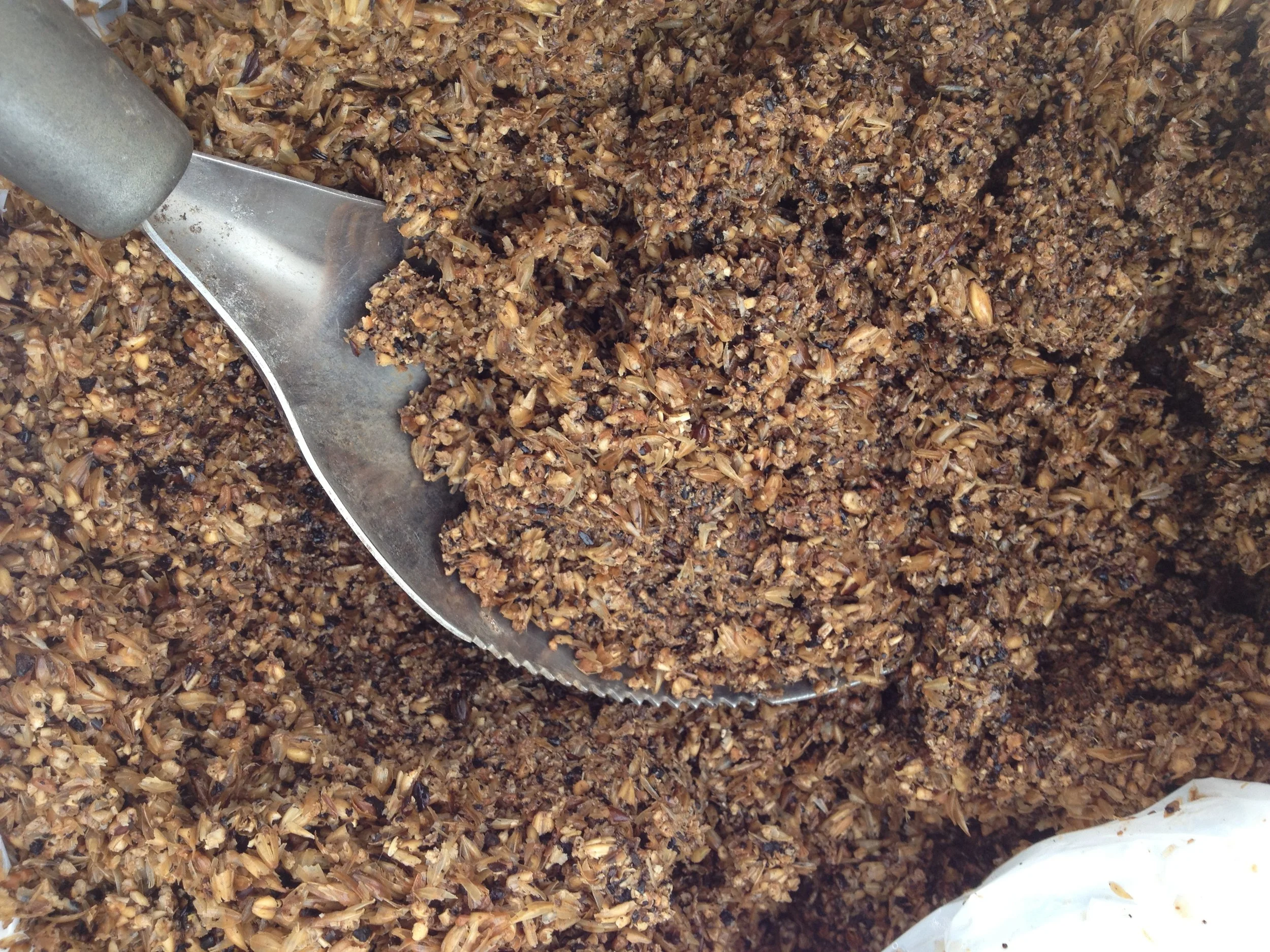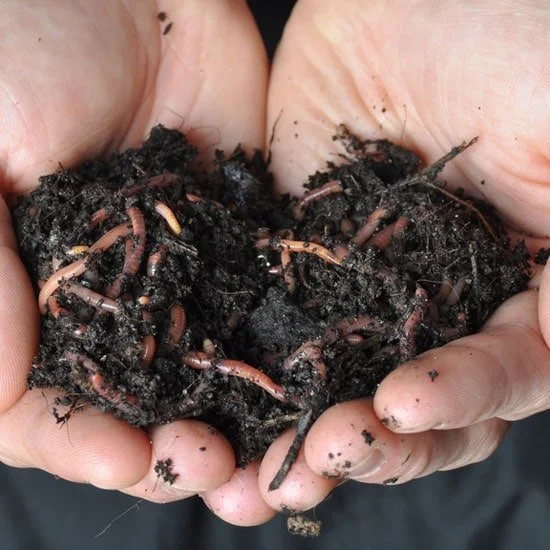Smarter Composting
My whole life had been spent waiting for an epiphany, a manifestation of God's presence, the kind of transcendent, magical experience that lets you see your place in the big picture. And that is what I had with my first [compost] heap. Bette Midler
I’ve written often about composting on my blog and you can find those posts by using the search feature and inserting “compost” or at a few “related posts” at the end of this piece.
But recently, I was intrigued by a podcast with Cary Oshins from the U.S. Composting Council. I liked his take on the process which is a little more easy going than Cooperative Extension literature, which can be intimidating for a beginner.
Lucy, very interested in the smells of the compost pile and hopeful she might give chase to a mouse.
Oshins distinguishes between passive and active composting and you can choose what suits your style and climate. I’ve done both. Active management of my “hot” bin produces garden ready compost in about two months here in SoCal. In New England, the process was slower and cooler but delivered.
Bin or wire enclosure or a hole in the ground may depend on the effort you want to expend, whether critters or rodents will visit and how fast you want to generate compost.
In Massachusetts, a hole in the ground and a shovel nearby worked for our household garbage. I dealt with mountains of autumn maple leaves and garden debris in a wire corral which yielded rich, humus for the garden in late spring.
Listen to the podcast or read the transcript at the link below.
Smarter Composting (Skip the Gimmicks!) with U.S. Composting Council’s Cary Oshins interviewed on A Way to Garden Here are a few key podcast takeaways:
The 3-1 carbon to nitrogen (brown to green) ratio may be most important when you’re starting a compost pile.
For batch composting, (faster and hotter) the ratios may be more important.
Heat kills pathogens and weed seeds and substances that could be toxic to plants are broken down.
When you add fresh ingredients, mix in with the active compost then top with some leaves or straw.
Compostable containers are intended for industrial-scale composting.
Another useful read is 4 Bay Compact Composting at Mother Earth News Magazine, presenting yet more facts and another simple method for composting.
Quotes on Compost and Composting
The organic gardener does not think of throwing away the garbage. She knows that she needs the garbage. She is capable of transforming the garbage into compost, so that the compost can turn into lettuce, cucumber, radishes, and flowers again. Nhat Hanh
Never plant without a bucket of compost at your side. Elsa Bakalar
Producing quality compost is the most important job on the organic farm. A lot of the problems I see on farms I visit could be solved by making better compost. Eliot Coleman
Confess yourself to heaven, Repent what's past, avoid what is to come, And do not spread the compost on the weeds To make them ranker.. William Shakespeare
Earth knows no desolation. She smells regeneration in the moist breath of decay. George Meredith
Kings and cabbages go back to compost, but good deeds stay green forever. Rick DeMarinis

